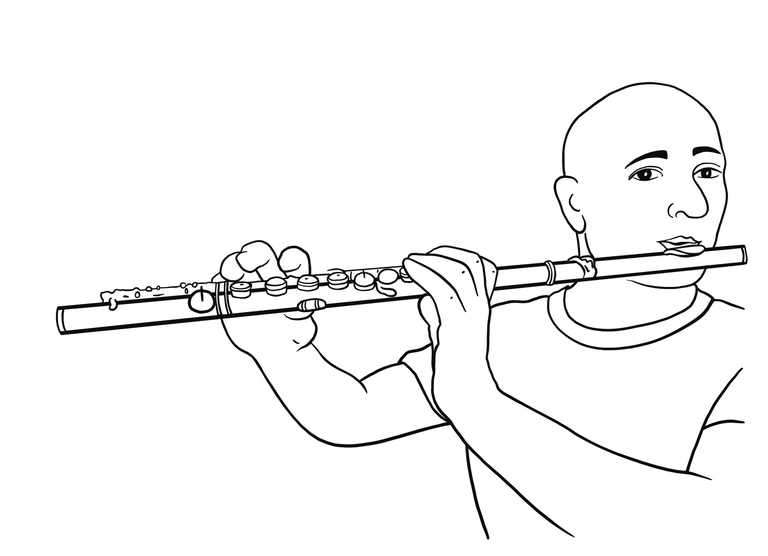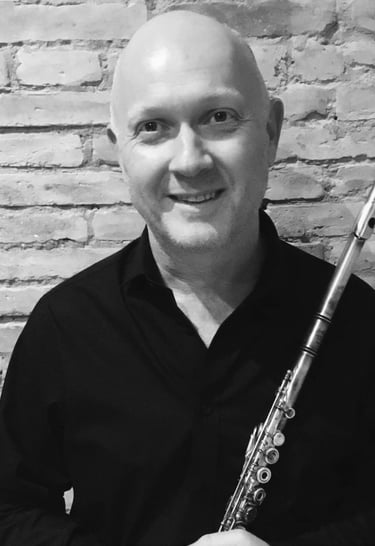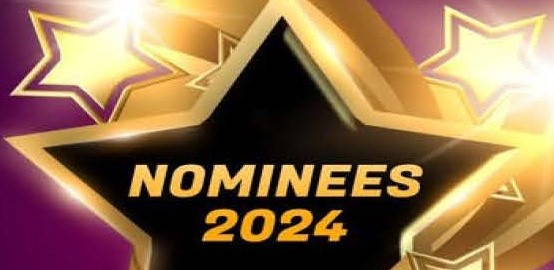Private Flute Lessons with Steven Cupitt
Unlock your full potential as a flute player with private lessons tailored to your goals and experience. I teach from my home studio in Aspley Guise, near Woburn, on the Bedfordshire/Buckinghamshire border—just 5 minutes from Junction 13 of the M1.
Online lessons are also available, with students encouraged to send a short video in advance along with their goals, ensuring every session is focused, productive, and inspiring.
Occasional lessons are offered in London at The Music Studios, 29 Marylebone Lane, W1U 2NQ.
Lesson recommendations:
Beginners and up to Grade 2: 30-minute lessons, which can be shared with a friend.
Grade 3–5: 30-minute individual lessons for targeted progress.
Grade 5+: 45–60 minute lessons to refine technique, expression, and performance skills.
Whether you’re just starting out, preparing for exams, or aiming to perform with confidence, my lessons focus on building technique, musicality, and enthusiasm. Each student receives personalised guidance, practical tools, and encouragement to develop as a confident, expressive musician.
Enquire today via the contact form above and start your journey to becoming the best flute player you can be.
My Teaching Philosophy
Learning should be enjoyable, and students should leave each lesson inspired, motivated, and excited to practice and improve. Ultimately, we are learning to play the music, not just the instrument—technique is the tool that allows us to play with confidence, expression, and artistry.
Goal-Oriented Practice: Every lesson should give students clear objectives. They should leave understanding exactly what they are working towards and how to achieve it. Teachers provide the tools for independent practice, and technology can be harnessed to maximise efficiency and progress.
Physical and Auditory Awareness: Students should develop a deep awareness of their physical actions and the sensations involved in playing, understanding how these influence the sounds they produce. Equally important is cultivating a keen ear—learning to listen critically and act intentionally to refine tone, intonation, and expression.
Autonomy and Problem-Solving: Students should learn to think critically, solve problems, and make musical decisions independently. While guidance is essential, the goal is to empower learners to take responsibility for their progress, seeking teacher input when needed.
Musical Imagination and Inner Ear: Students should develop a clear idea of how they want to sound. Musical imagination and a well-trained inner ear allow them to shape tone, phrasing, and expression with intention.
Collaboration and Ensemble Playing: Music is a social art. Playing with others develops essential skills such as concentration, communication, creativity, and the ability to respond to both verbal and non-verbal cues. Ensemble experience nurtures adaptability and interpersonal skills alongside musical growth.
Reflective Learning: As students advance, they should combine learning through doing with learning through thinking, reasoning, and analysis. This reflective practice fosters a deeper understanding of music and their own playing.
Research-Informed Teaching: My approach is grounded in academic research and ongoing professional development. By continuously refining teaching methods, I aim to provide students with evidence-based strategies that genuinely enhance learning and musical growth.






